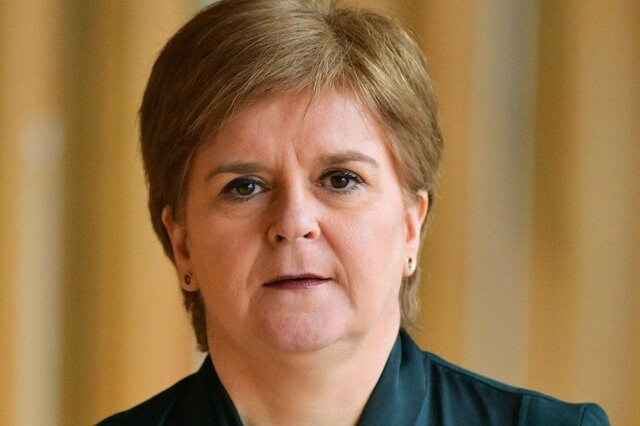Edinburgh – Scotland’s First Minister Nicola Sturgeon announced on Wednesday her resignation after more than eight years leading its devolved government, in a shock move jolting British politics on both sides of the border.
The Scottish National Party (SNP) leader said in “my head and in my heart” she knew the time was right to quit, after approaching a decade in power pushing for Scottish independence and opposing Brexit.
The 52-year-old departs as Scotland’s leader and head of the SNP, the largest party in the devolved parliament, after facing mounting pressure over her tactics for independence and over transgender rights.
She confirmed she would remain as first minister until the SNP elects a new leader.
“This decision comes from a deeper and longer-term assessment,” Sturgeon said in a hastily arranged press conference, insisting her departure was “not a reaction to short-term pressures”.
“I know it may seem sudden, but I have been wrestling with it – albeit with oscillating levels of intensity – for some weeks.”
‼️IMPORTANT POINT‼️
With the resignation of Nicola Sturgeon… NONE of the top 4 parties now have the same leader as they had in the 2019 election.
That’s NINETY-ONE PERCENT OF THE VOTE!
Do you think maybe it’s time for a general election?#GeneralElectionN0W
— Femi (@Femi_Sorry) February 15, 2023
Sturgeon, who became the first woman to lead Scotland when she took power in 2014, vowed to continue pushing for Scottish independence.
She had overseen unprecedented electoral success for the SNP as she pushed for another referendum on the issue.
She took over in the aftermath of the last poll, which saw Scots reject breaking away from the rest of the UK by more than 10 percentage points and has been doggedly pushing for another vote.
The UK government, which must approve the holding of another referendum, has insisted that the September 2014 vote was a once-in-a-generation event and refused to allow another.
‘Public servant’
In 2021, the SNP won a fourth consecutive term in power in Edinburgh on a platform of holding a fresh poll, recording the largest share of the popular vote.
But it fell one short of an outright majority and allied with the Greens to stay in power.
Scotland’s parliament and its ruling executive were formed in 1999 under devolution reforms created by the then Labour government in London.
But since 2021, the push for independence has stalled, with a flurry of recent opinion polls showing declining support in Scotland for breaking away.
ALSO READ | New Zealand PM Jacinda Ardern announces shock resignation
Some critics, even within the ruling SNP, have blamed Sturgeon for failing to deliver a winning strategy on the issue after the Supreme Court in November sided with the UK government in blocking a fresh vote.
She has also faced a backlash over her support for transgender rights, after becoming embroiled in a row over whether transgender women can be housed in all-female prisons.
Despite that, as recently as last month she insisted she would remain in the role, telling the BBC she was “nowhere near” ready to quit after Jacinda Ardern’s shock departure as New Zealand prime minister.
Political allies immediately paid tribute to Sturgeon, with SNP MP Stewart McDonald describing her as “the finest public servant of the devolution age” and her departure as an “enormous loss”.
“Her public service, personal resilience and commitment to Scotland is unmatched, and she has served our party unlike anyone else,” he added.
Follow African Insider on Facebook, Twitter and Instagram
Source: AFP
Picture: Twitter/@FacundoSavala
For more African news, visit Africaninsider.com


